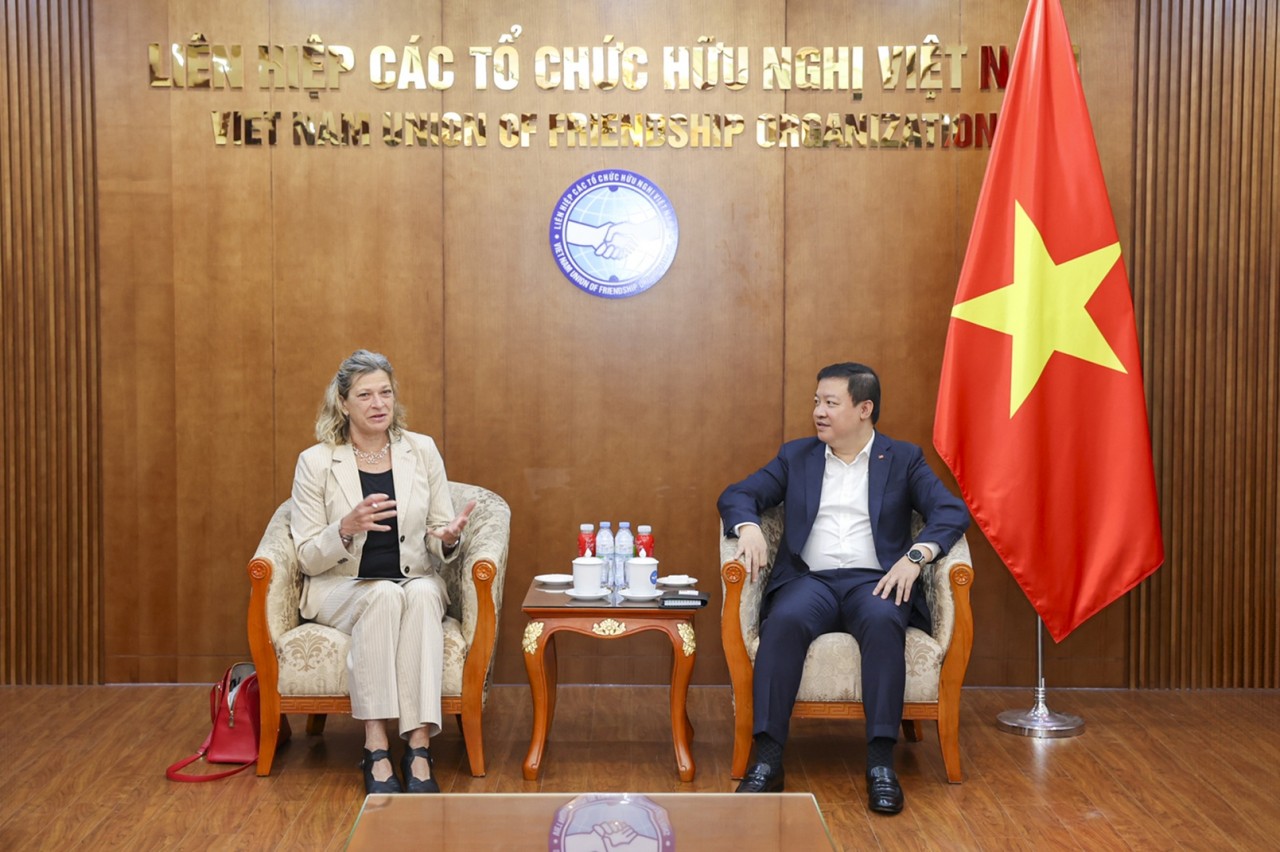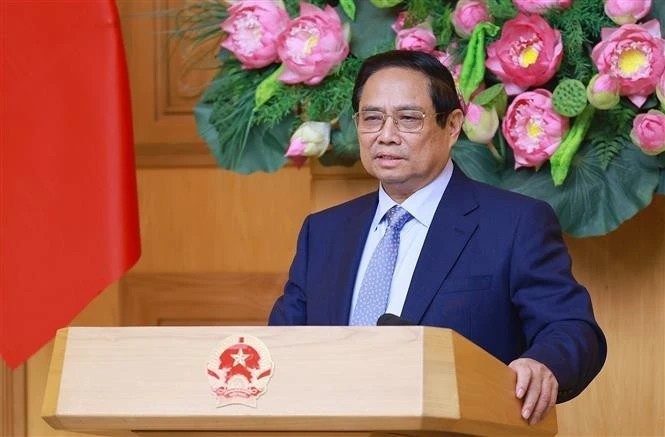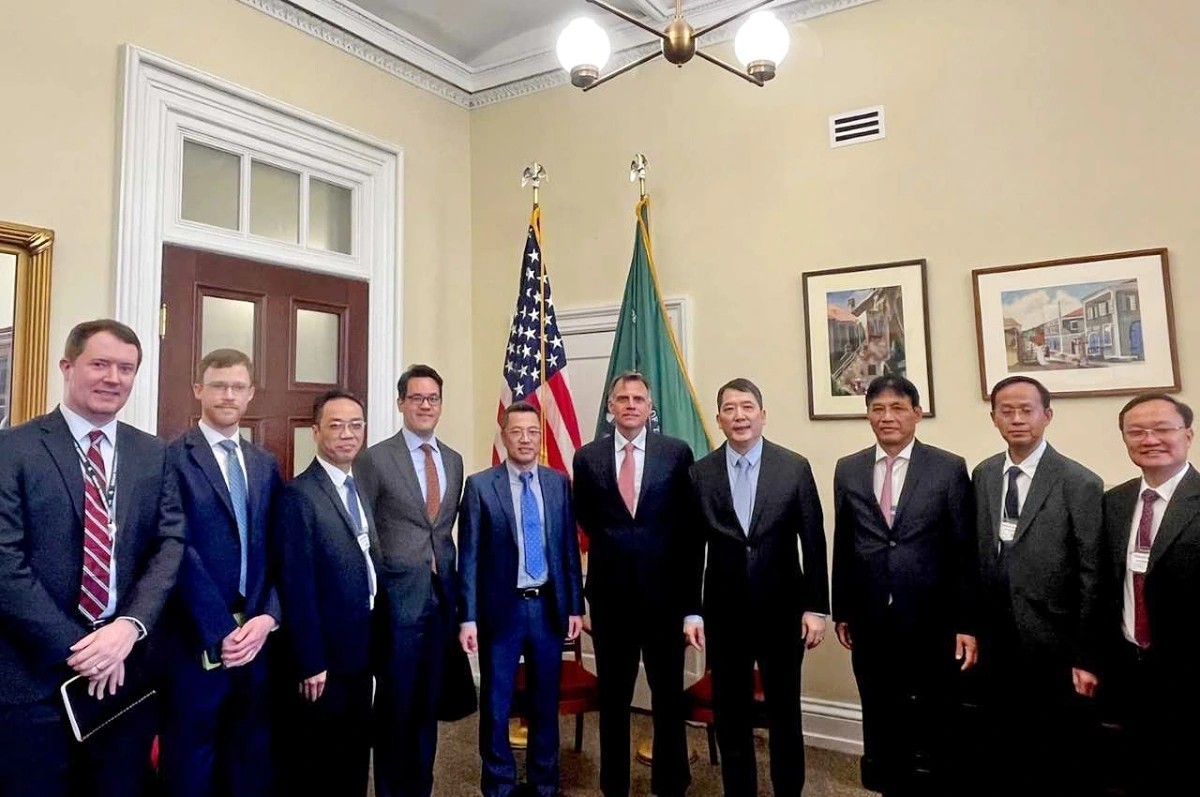Vietnam News Today (Jun. 13): Vietnam Elected As Vice Chair of General Assembly of 2003 UNESCO Convention
| Vietnam News Today (Jun. 11): Vietnam Always Treasures All-around Ties With Cambodia | |
| Vietnam News Today (Jun. 12): Vietnam Attends BRICS Dialogue With Developing Countries |
| Vietnam News Today (Jun. 13) notable headlines Vietnam elected as Vice Chair of General Assembly of 2003 UNESCO Convention Nghe An, US university promote cooperation in human resources training Vietnam keen to deepen strategic partnership with Germany Technologies crucial for Vietnamese firms to make breakthroughs: Experts Vietnam seeks to attract wealthy Muslim travelers Vietnam desires stronger all-around cooperation with Dominican Republic International Day of Play celebrated by UN for first time under Vietnam's initiative Vietnamese businesses contribute to improving Lao livelihoods 100 exhibitors join Agri Vietnam 2024 in HCM City |
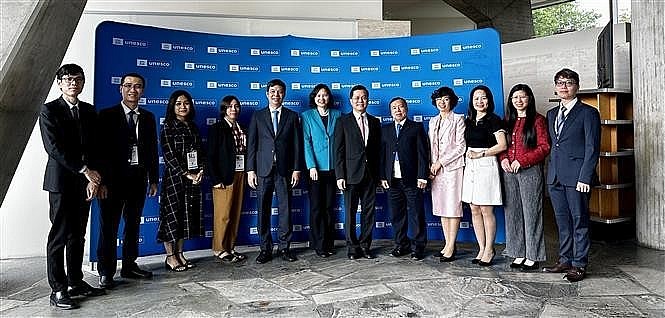 |
| A Vietnamese delegation to the event (Photo: VNA) |
Vietnam elected as Vice Chair of General Assembly of 2003 UNESCO Convention
The nation has been elected as Vice Chair of the General Assembly of the State Parties to the 2003 Convention for the Safeguarding of the Intangible Cultural Heritage by UNESCO member countries, thereby bringing the number of key UNESCO mechanisms that the country is involved in to six.
The 10th session of the General Assembly of the 2003 Convention for the Safeguarding of the Intangible Cultural Heritage opened on June 11 at the Headquarters of the UN Educational, Scientific and Cultural Organization (UNESCO) in Paris, featuring the participation of 183 member countries and more than 100 observers.
Deputy Minister of Foreign Affairs Ha Kim Ngoc, chairman of the Vietnam National Commission for UNESCO, led the Vietnamese delegation at the session and said that this appointment showed the nation’s rising international profile and the international community's trust in its ability to contribute to global institutions.
He therefore attributed Vietnamese success to the Party and State's sound foreign policy on diversification and multilateralization of external ties, as well as its comprehensive global integration and cultural diplomacy initiatives, especially the Cultural Diplomacy Strategy to 2030.
In its role as Vice-Chair, the nation will play a key part in shaping UNESCO's cultural agenda and driving progress on the 2003 Convention. He also stressed Vietnamese commitments to leveraging UNESCO's programs, as well as its plans and initiatives to support national development, heritage preservation, and in ensuring the highest national interests in global cultural co-operation, cited VOV.
The country boasts a rich tapestry of intangible cultural heritage, with 15 elements inscribed on the UNESCO Intangible Cultural Heritage List and 550 recognised nationally. Indeed, it continually fine-tunes national policies and laws, most recently the National Target program on Cultural Development to 2045 and the amended Cultural Heritage Law, Deputy Minister Ngoc affirmed.
In his opening speech at the session, the Vietnamese diplomat called for continued international co-operation and effective implementation of the Convention, underscoring the importance of knowledge sharing and capacity building for developing states, with a specific focus on empowering communities, women, and youth in heritage preservation efforts.
The General Assembly serves as the sovereign of the 2003 convention and acts as a platform for 183 member states to collaborate on safeguarding the world's living cultural traditions. Vietnam officially joined the 2003 Convention on September 5, 2005, thereby becoming one of the first 30 countries worldwide to adopt this important Convention. The nation has been elected twice to the Intergovernmental Committee for the Safeguarding of Intangible Cultural Heritage.
The country is in the process of finalizing and submitting several dossiers for UNESCO recognition, including the Yen Tu - Vinh Nghiem - Con Son, Kiep Bac relic and scenic complex; the Oc Eo-Ba The archaeological site, Con Moong Cave, the Ba Chua Xu Tem Festival at Sam Mountain, Dong Ho folk painting art, cheo stage art, Mo Muong, Lang Son Geopark, and notably a project aimed at preserving and promoting the values of the central sector of the Thang Long Imperial Citadel in Hanoi.
Nghe An, US university promote cooperation in human resources training
The central province of Nghe An and the US Asia Chamber of Commerce (USACC) and the North American University (NAU) will work together on a high-quality human resources training program.
At a working session in Nghe An on June 12 with the US sides, Director of the provincial Department of Education and Training Thai Van Thanh stressed that the cooperation program is significant for the province which sees enhancing domestic and international collaboration as a breakthrough mission in its long-term strategy to create a legal framework for sustainable education development by 2030 with a vision to 2045.
He expressed his hope that local education establishments and the NAU will bolster cooperation in the domains of semiconductor, electronicization, and several new sectors to meet workforce demand in the era of digitalization, VNA reported.
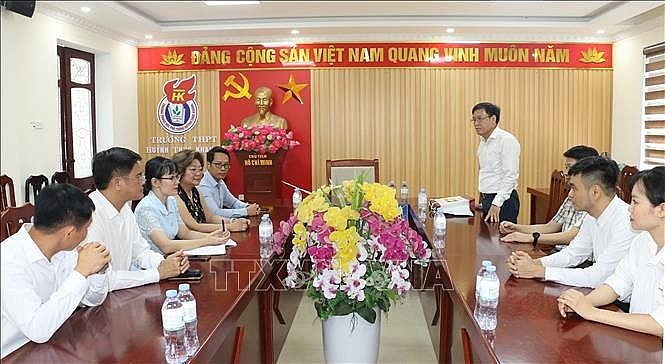 |
| At the working session between Nghe An and the US sides on June 12. (Photo: VNA) |
Thanh went on to say that the NAU and other US universities will support Nghe An province with the building of new models for smart and creative cities, and invest in their branches or international universities at the local university urban area which will be developed under Vinh city's planning scheme by 2050.
For her part, NAU President Jill Martin said that the university wants to work with the local education sector and schools in the areas of training, scholarship granting and exchange of curricula.
Under the cooperation program, the NAU will create favorable conditions for local students who pursue study at the US university, she added.
Following the working session, representatives from the USACC and NAU visited the advanced education model at Huynh Thuc Khang High School in Vinh city.
Vietnam keen to deepen strategic partnership with Germany
Vietnam always greatly values Germany’s role and leading position in Europe and the world as a whole, and places importance on deepening the bilateral strategic partnership across the board with the European nation.
Prime Minister Pham Minh Chinh made the statement at a reception for outgoing Ambassador Guido Hildner in Hanoi on June 12, during which he suggested Germany ramp up cooperation with Vietnam in labor, employment, education-training and energy transition, among other fields.
Germany remains Vietnam’s biggest trade partner in the European Union (EU) and one of the largest EU investors in the country, with last year’s bilateral trade surpassing US$11 billion, cited VOV.
Germany ranks 18th out of the 143 countries and territories investing in Vietnam, while Vietnam is also one of Germany’s biggest trade partners in the ASEAN and fifth in Asia, Chinh told his guest.
The Vietnamese Government chief noted his appreciation for Germany’s support for Vietnam’s socio-economic development over more than three decades, particularly its identification of Vietnam as a global partner in the Development Cooperation Strategy 2030 with the three priorities of energy, environment and vocational training.
Hailing Germany’s support for Vietnam’s joining of the Just Energy Transition Partnership (JETP), Chinh called on the country to go ahead with its closer cooperation in the implementation of the partnership.
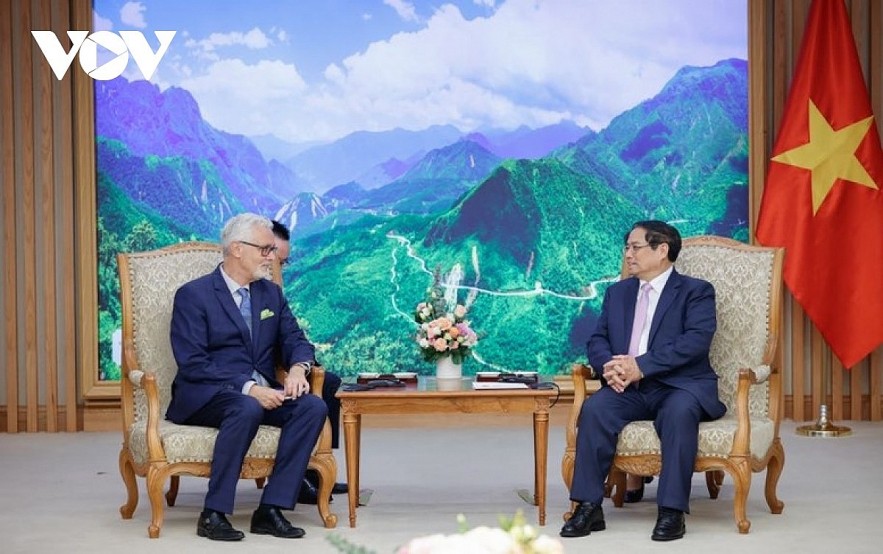 |
| Prime Minister Pham Minh Chinh (R) receives German Ambassador Guido Hildner. |
He asked Germany to grant more scholarships to Vietnamese students, and boost collaboration in vocational training and high-quality personnel development, suggesting both nations should continue working hand in hand in realizing the EU-Vietnam Free Trade Agreement (EVFTA), and the EU-Vietnam Investment Protection Agreement (EVIPA) once it becomes effective.
Chinh took the occasion to appeal to Germany to urge the European Commission (EC) to remove its “yellow card” warning against Vietnamese seafood.
In response, Hildner applauded Vietnam’s development over the past years, especially in green, sustainable development, while affirming his nation’s readiness to receive Vietnam’s skilled laborers and admit more Vietnamese students.
German appreciates Vietnam’s commitment to net zero emissions by 2050, and hopes to play a more active role in the Southeast Asian nation’s energy transition, including its implementation of agreements within the JETP, the ambassador stated.
Regarding regional and international issues of shared concern, the two sides agreed upon fundamental principles and respect for international law to maintain and promote peace, stability, cooperation and development in the region and the wider world.
They underscored the need to ensure security, safety and freedom of navigation and aviation in the East Sea, and settle disputes by peaceful measures in line with international law, especially the 1982 United Nations Convention on the Law of the Sea (UNCLOS).
Technologies crucial for Vietnamese firms to make breakthroughs: Experts
Experts gathered at the International Innovative Business Forum (IIBF) 2024 held in Ho Chi Minh City on June 12 to discuss business promotion through the application of new technologies in the world, and measures to support enterprises to achieve breakthroughs and higher competitiveness.
Shashi Jagadiswaran, Deputy General Director and Technology and Digital Consulting Leader at EY Consulting Vietnam, underlined the need for businesses, regardless their operating areas, to clearly define that their customers are living in a digital world, thereby designing proper business strategies, bringing their products closer to customers to win their confidence as well as market share.
He advised businesses and manufacturers to carefully choose the right technology to best approach customers amid a large number of new technologies by clearly calculating the return on investment.
In Vietnam where about 72.1 million people are using the Internet, ranking 13th in the world, the Government's digital transformation policy is expected to contribute 30% to GDP and help promote digital economic development.
Macro technology trends are shaping the future of industry, requiring businesses to embrace advanced technology to drive business transformation, gain competitive advantages and become stronger, according to experts.
Bui Van Trinh, Deputy General Director of Deloitte Vietnam, cited research by his company showing that there are three key trends that summarize the driving forces shaping the consumer goods industry's journey to digital maturity, including the application of data analytics to digital commerce strategy.
Minister of Science and Technology Huynh Thanh Dat highlighted the significant role of technology transfer, application, and innovation in increasing productivity of product quality as well as enhancing business competitiveness, VNA reported.
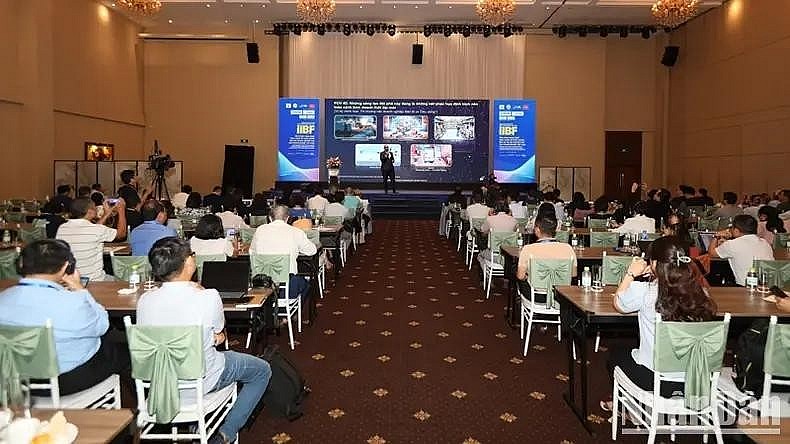 |
| An overview of IIBF 2024 (Photo: nhandan.vn) |
Particularly, in the context of international integration through new-generation free trade agreements (FTAs) and the influence of the fourth Industrial Revolution, technology capacity is a key factor for businesses to produce products and services with competitive or superior characteristics, meeting the increasing demands of the market, he said.
The minister pointed to pressures on businesses in the field, stressing the need for them to apply systematic measures to absorb and renovate technologies, gradually moving towards technological autonomy, and green and sustainable technology.
Dat pledged that his ministry will continue to accompany the Business Association of High Quality Vietnamese Products, which gathers leading Vietnamese enterprises, in building and expanding the association network to help its members to seek cooperation opportunities with new international partners and approach new technological advances.
He asked the association to strengthen connections between domestic businesses and technology suppliers in the world to enhance the productivity, product quality, and competitiveness of Vietnamese firms.
Vietnam seeks to attract wealthy Muslim travelers
Vietnam has not attracted many Islamic travelers because it lacks Halal-standard restaurants and places for travelers to pray, and has not focused on marketing.
Islamic countries, with 2.1 billion people, are a large target tourism market for Vietnam. About 140 million Muslim travel, but Vietnam attracted less than 1 million in four years.
Nguyen Trung Khanh, head of the Vietnam National Authority of Tourism (VNAT), said Muslims like traveling and spending lavishly and ostentatiously on tourism services. Therefore, all countries pay special attention to the travelers from the market.
The Global Muslim Travel Index report showed a rapid increase in the number of Muslim travelers. It estimated that 108 million Muslims traveled in 2013, while the figure reached 160 million in 2019. After the two years of the Covid-19 pandemic, the market has been recovering.
About 140 million Muslims are predicted to travel internationally in 2023. Experts predict that 230 million Muslims will travel in 2028 and spend US$225 billion.
However, the number of Muslim travelers to Vietnam remains modest. From 2015, when the first Muslim travelers came to HCM City, to the days just before the Covid-19 pandemic, or within four years, Vietnam received 1 million travelers from the market.
Thai agencies estimated that 400,000 travelers from the Middle East came to Thailand in 2022 out of the 11.8 million foreign travelers the country received, an increase of 65 percent over 2019. The total spending of the travelers also increased by 71 percent.
Thailand stands fourth on the list of non-Islamic countries favored by Islamic travelers, following Malaysia, Singapore and the UK, cited VNN.
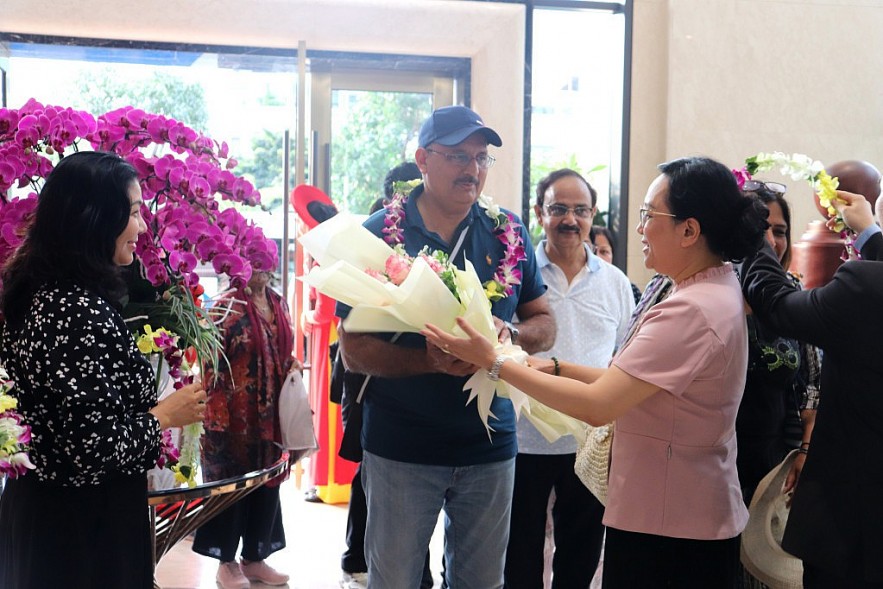 |
| Photo: VNN |
Khanh noted that Halal tourism still cannot get appropriate attention and investments. In order to attract travelers, Vietnam needs to satisfy specific requirements.
There is only one room for Islamic people to pray and one Halal food court in Vietnam, located at Tan Son Nhat International Airport, which was built in December 2022.
However, this area does not receive all Muslim travelers, but it is reserved only for 70 VIP business-class passengers, a small figure compared with the thousands of Muslim people passing through each day.
There are 14 mosques in HCM City, but only three are located in the central area, favorable for tourists to pray. There are nearly no pray rooms and Halal restaurants in the southeastern region (Binh Duong, Dong Nai, Ba Ria - Vung Tau), the Mekong River Delta and the Central Highlands, including Da Lat City, a famous tourism site.
Tran Nu Ngoc Anh, president of Dong A Hotel Group, said Halal tourism has tended to shift to Southeast Asian countries, including Vietnam. However, Vietnam still hasn't attached much importance to the market, or called for investments to develop services for Muslim travelers.
Nguyen Huyen Anh, deputy director of the Quang Ninh Tourism Department, admitted that though more Indian and Muslims have come to Quang Ninh recently (113,000 Indian travelers in the first 8 months of 2023, or five times higher than the 22,000 travelers in 2022), the number of these travelers remains modest.
Anh cited a number of barriers that make it difficult for the locality to attract Muslim travelers – the lack of communications and advertising programs, and the difference in culture, religion and taste. Also, Vietnam’s tourism products are not diverse enough and the infrastructure specifically prepared for this group of travelers remains poor.
Vietnam vows to attract wealthy Islamic travelers
Analysts say they can see opportunities to attract Islamic travelers. There are 2.1 billion people in the Muslim world and they spend US$10 trillion a year.
Attracting wealthy Islamic travelers is now a new issue of interest for Vietnamese investors and tourism firms. The Vietnam tourism development strategy to 2030 also mentions the need to develop new markets with potential, including the Middle East and India.
Khanh said Vietnam is trying to target markets with people who are willing to pay high prices for services and choose long tours, with the emphasis on the Middle East which comprises 16 countries, including six Gulf countries (Saudi Arabia, UAE, Oman, Qatar, Kuwait and Bahrain).
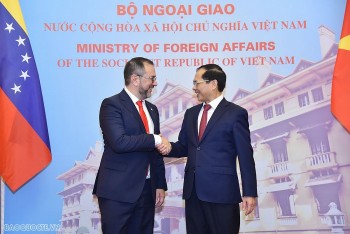 | Vietnam News Today (Jun. 9): Vietnam And Venezuela Pledge to Expand Multifaceted Cooperation Vietnam News Today (Jun. 9): Vietnam considers ratifying UK’s Accession Protocol to CPTPP; Vietnam, Russia further enhance cooperation; Vietnam and Venezuela pledge to expand multifaceted ... |
 | Vietnam News Today (Jun. 10): Da Nang International Fireworks Festival 2024 Kicks Off Vietnam News Today (Jun. 10): Da Nang International Fireworks Festival 2024 kicks off; Hanoi to pilot smart traffic system; Vietnamese Embassy introduces culture, cuisine at ... |
In topics
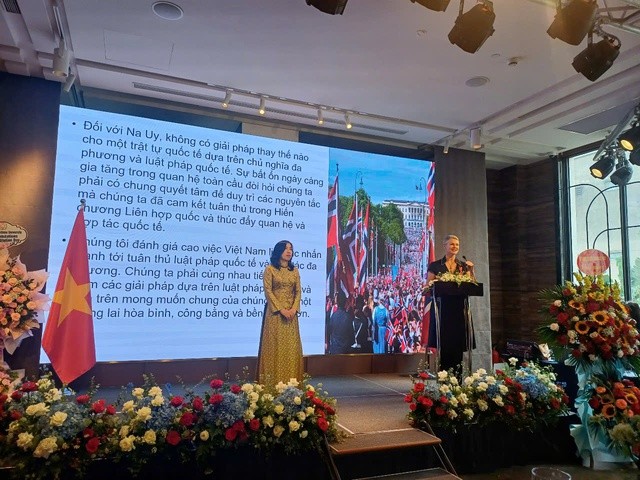 National
National
Vietnam News Today (May 19): Norway Hails Vietnam’s Continued Emphasis on Upholding International Law
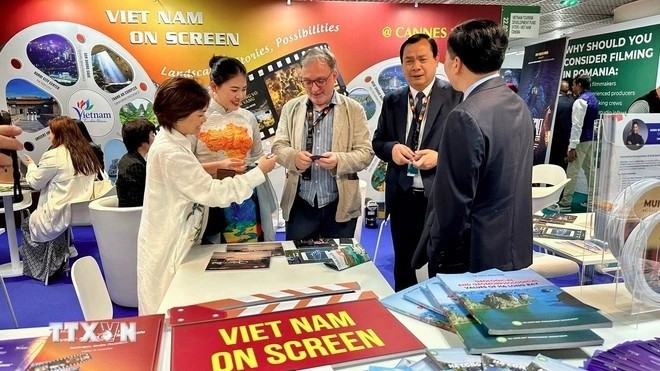 National
National
Vietnam News Today (May 18): Cannes 2025: Vietnam Rising as New Destination for International Filmmakers
Recommended
 National
National
Strengthening Vietnam-Thailand Relations: Toward Greater Substance and Effectiveness
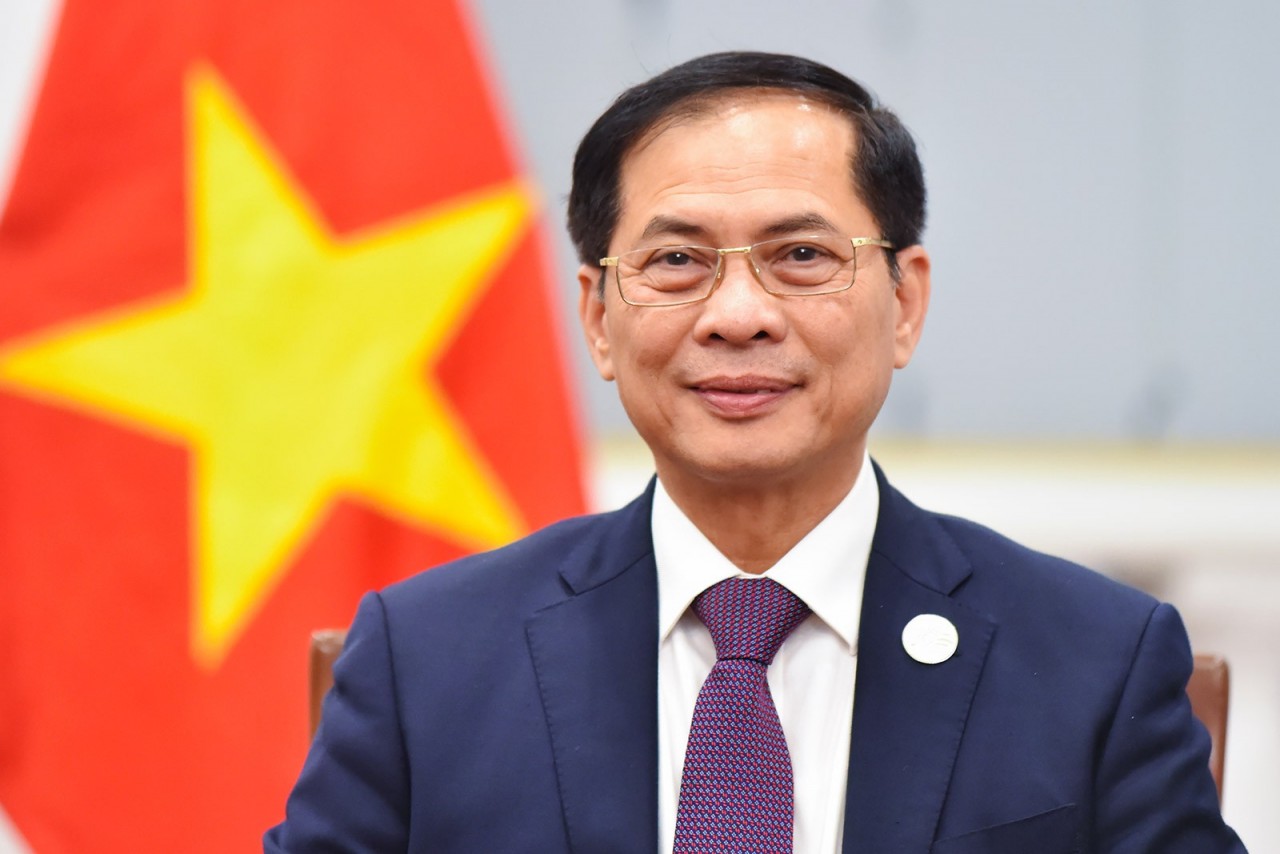 National
National
Four Notable Outcomes of General Secretary To Lam’s Four-nation Tour
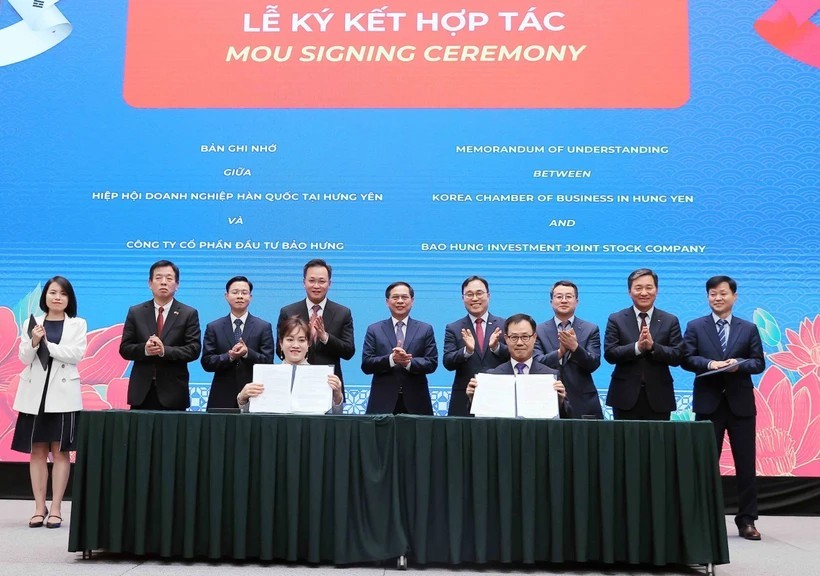 National
National
Vietnam News Today (May 15): Vietnam Looks for Stronger Cooperation with RoK in New Era
 National
National
Vietnam News Today (May 13): Vietnam Maintains High Human Development Index Despite Global Slowdown
Popular article
 National
National
Vietnam News Today (May 19): Norway Hails Vietnam’s Continued Emphasis on Upholding International Law
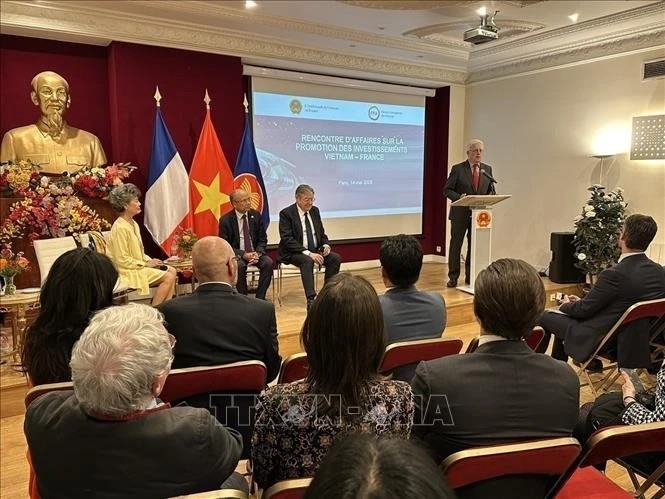 National
National
Vietnam News Today (May 16): Nha Trang Listed Among Top 15 Global Summer Destination in 2025
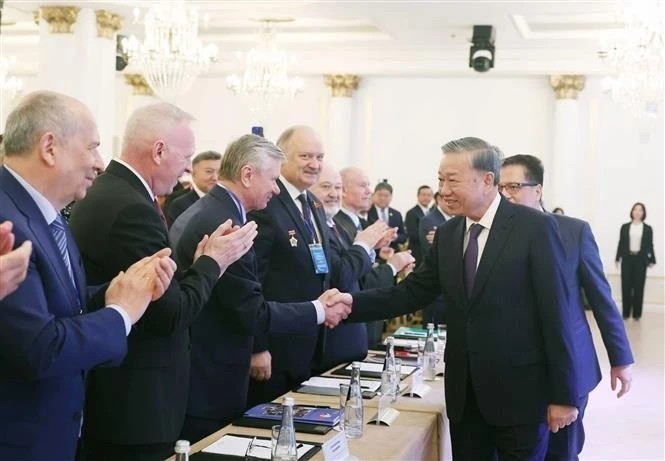 National
National
Vietnam News Today (May 12): Party General Secretary Meets With Russian Experts, Intellectuals
 National
National





